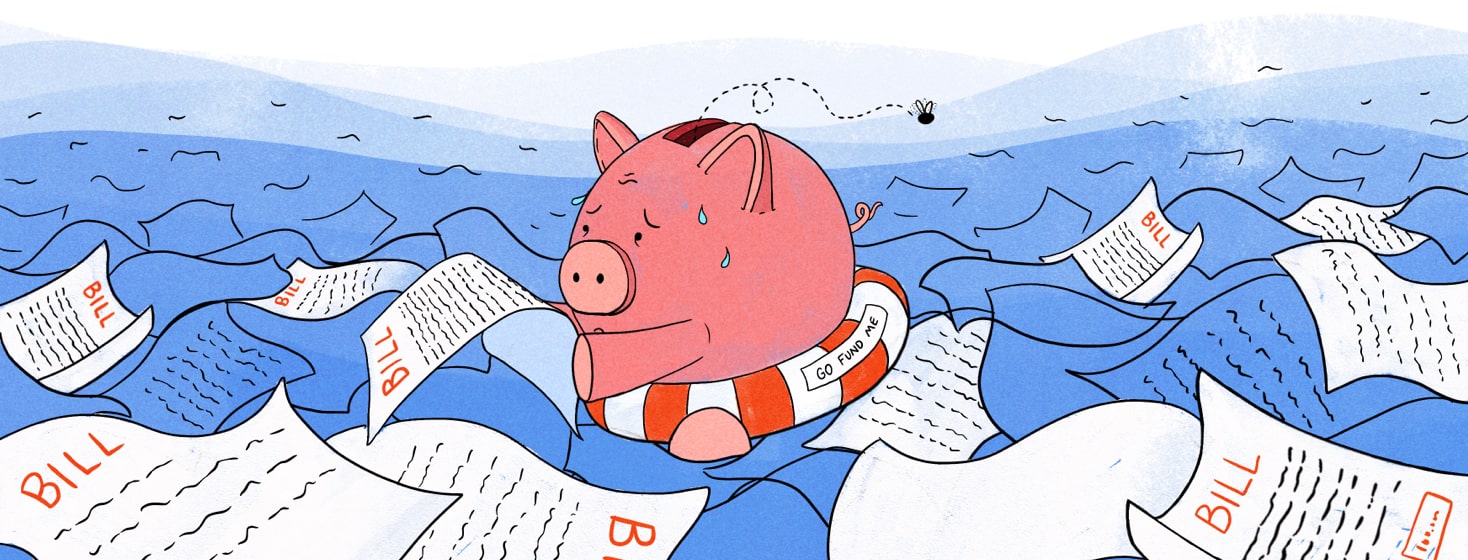Money Challenges: How Narcolepsy Affects Financial Independence
Aside from the condition itself, there's an added burden tied to narcolepsy that hardly receives recognition — the struggle to be financially independent.
In an ideal world, money would be the last thing that people with narcolepsy (and other disabilities) would have to worry about. Unfortunately, for most of us, financial worries centre around precisely that.
Facing adversity with narcolepsy
Aside from having to deal with the hardships of narcolepsy itself, there are unavoidable necessities that obligate us all to earn income in order to survive.
Before I continue, I have to first say that I believe that we are (in a way) incredibly fortunate to live in an era where disabilities are studied, respected, and above all, supported.
However, we also have to be aware that this doesn’t apply to all realities. There are more adversities facing people with disabilities than smooth sailing when it comes to having the privilege of being financially independent.
Featured Forum
View all responsesThe challenges of applying for disability aid
There are several things to keep in mind when we talk about financial aid.
Firstly, there’s the most anxiety-inducing factor of financial aid — the application process.
Being diagnosed with narcolepsy isn't enough to automatically qualify you for financial support. Instead, you have to jump through several hoops to prove that your condition is severe enough to receive even a minimal amount of financial assistance.
So, on top of having the stress of whether or not we will receive this support, there is the added ordeal of the application forms themselves. They are extensive, complicated, and simply don’t take into account the challenges they may impose on people with certain disabilities.
Ultimately, if you are fortunate enough to have been successful in obtaining financial aid, the sad reality is that it is still not a guarantee. There are, unfortunately, a lot of variants that can cause someone’s benefits to be reduced or even cease altogether.
People with narcolepsy face workplace stigma
When you're dealing with conditions like narcolepsy and other hidden health issues, you're often in the position of having to work to make ends meet. It's a reality many of us face.
It can be a daunting task to find a job that takes into account your specific health needs. Unfortunately, there is still a lot of stigma in the working world, which makes the job search even more challenging.
But here's the kicker: once you do land a job, the struggle doesn't stop there. Imagine having narcolepsy, which is like having a surprise package of symptoms and flare-ups waiting for you. It can really mess with your ability to stick to a regular work schedule, and when you have to call in sick or miss work days, it's not just about feeling unwell; it can have a financial impact and, in some cases, even cost you your job.
So, working with a chronic illness? It's like trying to juggle while riding a rollercoaster — it feels as though you're doomed for failure no matter what you do.
Is remote work a solution for a career with narcolepsy?
Since 2020, the remote lifestyle has undeniably opened a new world for everyone, but especially for those of us with conditions like narcolepsy. It offers a great amount of flexibility that can really help in managing our health requirements.
On the other hand, this option can also play a detrimental role in developing or worsening mental health illnesses like depression due to its isolating nature.
It's important to understand that living with narcolepsy creates significant financial uncertainties that need to be addressed. From grappling with financial aid to balancing traditional employment, living with chronic illnesses requires facing unique challenges and assertive and proactive measures to achieve financial stability. Despite these challenges, it's also important to realize that there are viable alternatives and opportunities available to create a life that balances health and financial well-being.
What's in control when you have narcolepsy?
The truth is, in most cases, the lives we end up living aren’t always within our control. A lot depends on where you live and what is available there.
All we can do is focus on what we can control and do our best with the options we have before us.

Join the conversation